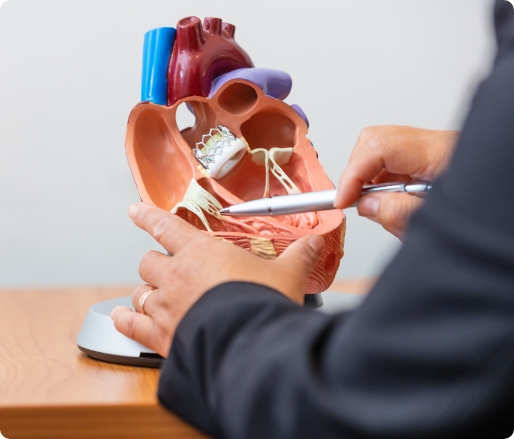Heart Failure
Heart failure is the term used when the heart muscle is weakened and is not pumping blood to the body as efficiently as it should be. It can be caused by a number of conditions.

Causes of Heart Failure
Some common arrythmias include:
- Coronary artery disease
- High blood pressure disease
- Disease of the heart valves
- Arrhythmias
- Diabetes
- Obesity
- Inflammation of the heart muscle
- Congenital heart diseases
Effective management of these conditions may help to prevent heart failure. Treatments such as medication or lifestyle modifications may help to make the heart pump better.
Signs and Symptoms of Heart Failure
Signs and symptoms of heart failure might include:
- Shortness of breath when you exert yourself or lie down
- Chest pain
- Weakness or fatigue
- Swelling in your legs, ankles and feet
- Rapid weight gain from fluid retention
- Swelling of the abdomen
- Reduced exercise capacity
- Dizziness
- Irregular or rapid heart beat
- Persistent cough or wheeze with white or pink phlegm
- Difficulty concentrating
- Lack of appetite or nausea
Types of Heart Failure
There are different types of heart failure. Heart failure can involve the left side, right side, or both sides of your heart. It can also involve the heart’s ability to relax or fill.
- Left sided heart failure – Characterised by shortness of breath which is caused by fluid backing up in your lungs
- Right sided heart failure – Fluid backs up and causes swelling in abdomen, legs and feet
- Systolic heart failure – The left ventricle cannot contract or pump vigorously
- Diastolic heart failure – The left ventricle cannot relax or fill properly
Diagnosing Heart Failure
We will talk with you about your symptoms and family history and conduct a physical examination. To diagnose heart failure, we may recommend some tests such as blood tests, an Echocardiogram (ultrasound of the heart), ECG and a chest X-ray.

